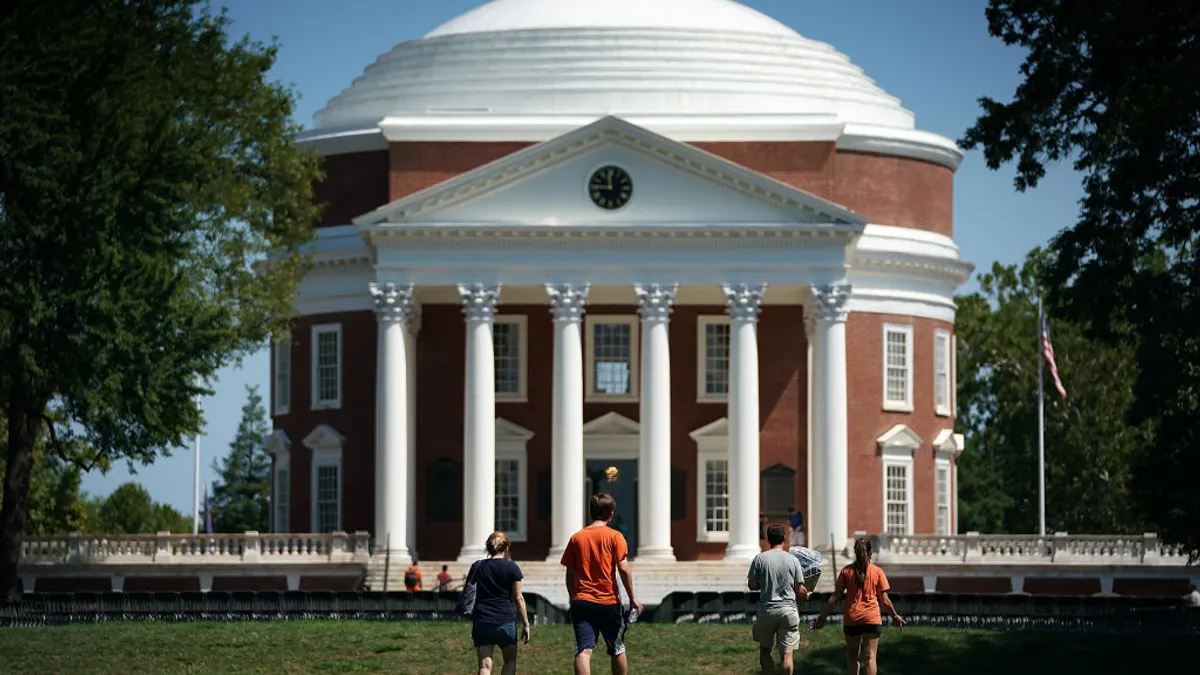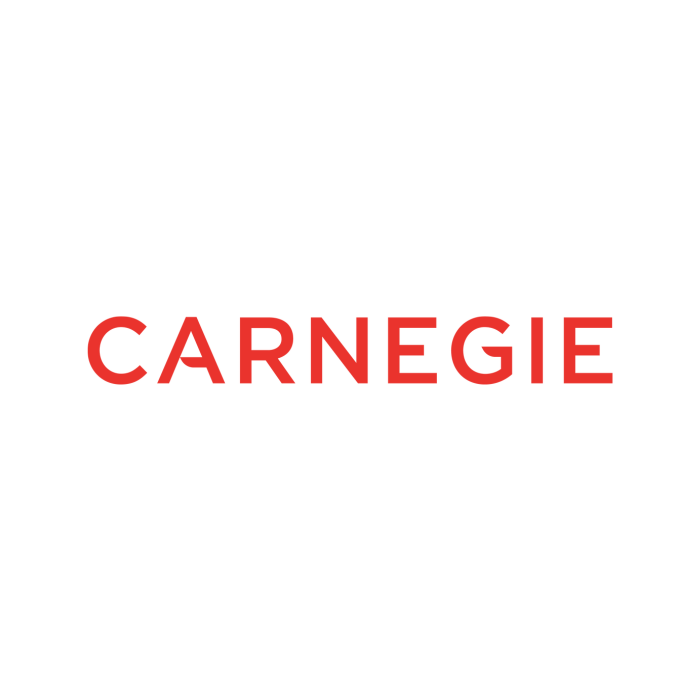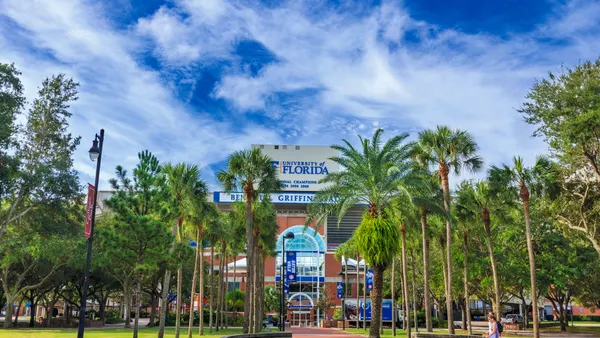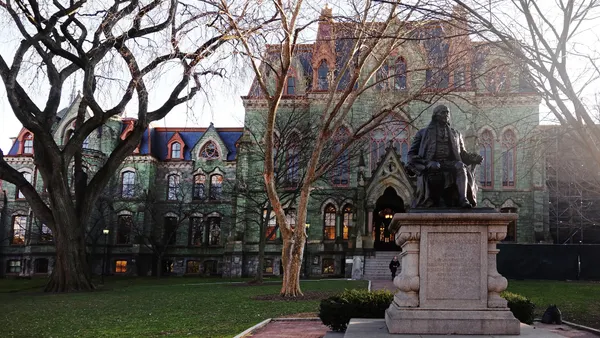Dive Brief:
- South Carolina's Commission on Higher Education held a series of town hall meetings on college accessibility and affordability, as state policymakers, including Tim Hofferth, chairman of the Commission on Higher Education board, expressed concerns that "we’ve had costs increase year over year at mind-bending speeds" and institutions "can’t stay on that path for long without a crash," reported The Post and Courier.
- Hofferth is calling on state institutions to make college more affordable and cut costs, or "rightsize," according to the Greenville News — part of a greater national trend of policymakers cutting state higher education budgets and questioning quality assurance practices.
- The commission pointed toward the University of South Carolina and Clemson University as employing business models other state schools could follow. Clemson's vice president of university relations, who stopped by the Education Dive office last week, said the institution's success is not due to enrollment of out-of-state students as the commission suggested, but rather because it "puts a lot of resources into student support," "focuses on the needs of the state and in-state students," and creates "beneficial workforce partnerships."
Dive Insight:
Public institutions have been feeling the pressures of declining state support and scrutiny over their ability to provide graduates that are workforce ready, while keeping tuition costs down. But critics of policymakers' scrutiny note that states are slashing higher ed budgets. Reports show South Carolina and other states have cut their higher ed budgets by more than 30% since the Great Recession.
Only 10% of Clemson's operating budget comes from the state, but enrollment is growing, with applications up 40% over during the last five years, according to Mark Land, vice president of university relations — which is why the commission pointed the school out. He said Clemson has struck the right balance between strategy and luck — good academics, a beautiful location and a successful football team.
"We've kind of found a sweet spot […] we leverage the culture of the place very strategically. We are located in a very safe part of the world so parents feel good about this, and our academics are solid," said Land. "The notion of this is strong in the state, as we've got many third and fourth generation Clemson students."
In terms of proactive steps, Land told Education Dive Clemson has focused on concrete ways it can serve the state as part of its land-grant mission, with more than two-thirds of its undergrads being in-state students. The institution focuses on STEM programs and building workforce partnerships, and created an office of external affairs to reach out to industry stakeholders.
"One of the big questions facing higher education is this value proposition. So, we are focusing very carefully on ourselves and not getting caught up in the rhetoric around budgets," Land said.
"For instance, Samsung moved to the state to make washing machines, seeing it as an R&D hub," he continued. "And within a few months of their being here we signed an agreement with them to form a partnership. They are looking for employees, research scientists."
The Clemson official also mentioned that the university has a similar hands-on learning and career pipeline partnership with BMW through its International Center for Automotive Research.
Beyond just ensuring value to the state, Land said Clemson focuses on providing value to the students.
"We put a lot of resources into student support," he said. "One of the most effective ways for students to feel less worried or anxious about the debt they've accumulated is to connect their field of study directly to their career. It's as simple as faculty members teaching a class and saying this is why you need these skills in the workforce."











